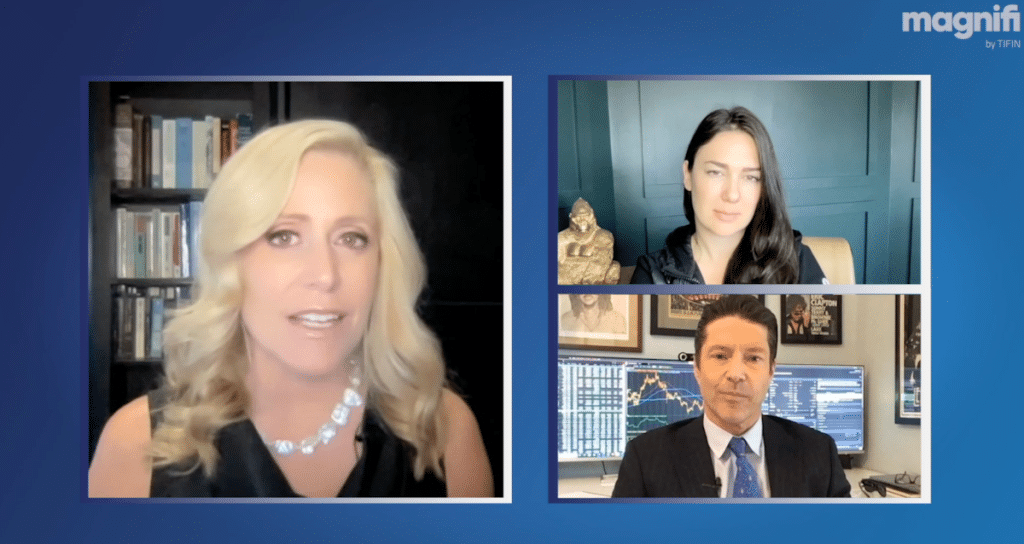I have to admit: I almost fell out of my chair when I read the latest details about the ongoing development of crypto regulation.
Reason? The CFTC or Commodity Future Trading Commission is throwing its hat in the ring to become the regulator of choice when it comes to spot crypto. And they're making some convincing arguments.
So, today we're going to break down what really happened in Washington earlier this month and why every crypto investor and trader should sit up and take notice.
The CFTC Wants Spot Crypto
The U.S. Senate Committee on Agriculture, Nutrition, and Forestry held a hearing that, to me, had a pretty simple set of goals: Figure out what kind of asset crypto is, why it needs to be regulated and who's going to take on the job. While I wasn't foolish enough to hope that all these questions would be answered sufficiently, the committee hearing made a good start.
The hearing, entitled "Examining Digital Assets: Risks, Regulation, and Innovation," held two panels. The first was with the CFTC Chairman Rostin Behnam, and the second was with experts from industry and academia, most notably Sandra Ro, CEO of the GBBC or the Global Blockchain Business Council.
The bi-partisan duo of Chair Debbie Stabenow (D-MI) and Sen. John Boozman (R-AR) made it clear that they were open to expanding the mandate empowering the CFTC. And that expansion could include regulating crypto. And they both admitted there was no time to waste.
According to Stabenow:
We can't afford to wait until the next crisis; Congress must work with regulators and the Biden administration to design a framework that protects consumers and our environment and keeps our markets fair, transparent, and competitive. (Source)
And according to Boozman:
There's a gap in the oversight of digital assets. This poses a danger to the American consumer and could threaten the resiliency of our financial markets if left unchecked. We have an opportunity here to broaden participation in our financial markets, but this must be paired with consistent rules of the road that protect investors and our markets. (Source)
The CFTC Is Up For The Job
CFTC Chairman Rostin Behnam says in no uncertain terms that his team is best suited to handle the regulation of spot crypto:
We are past the stage where digital assets and decentralized financial technologies are a research project, sandboxing what may come in the future. The issues are at the front and center of our thinking at the Commission, in addition to our traditional regulatory, oversight, and enforcement responsibilities. The CFTC is well situated to play an increasingly central role in overseeing the cash digital asset commodity market. (Source)
Right now, the CFTC is charged with regulating commodity futures and derivative markets associated with commodities. But it's not charged with regulating the commodities themselves. For example, the CFTC regulates futures and derivatives on corn, but not the regulation of corn itself. It also regulated futures and derivatives on gold, but not gold itself.
So, charging the CFTC with regulating spot crypto would mean it would take a big step into regulating a commodity itself. And they'd be able to take that step only if the CFTC's designation of spot cryptos like Bitcoin and Ether as commodities holds up. While they've made it clear that's their turf, it's not without debate.
And don't forget: The designation of Bitcoin and Ether as commodities doesn't clear up the status of the multitude of other cryptocurrencies out there. Those that behave like securities, and can pass the Howley Test, for example, would come under the prevue of the SEC. And that would trigger a ton of disclosure and registration requirements that you can bet most crypto and blockchain developers don't want to get saddled with.
Behnam also pointed out that the crypts markets are unique in that they involve a ton of retail investors. He's asking for authority to regulate the spot crypto market, those cryptos that are designated as commodities and not securities. He also wants the authority to drill into the visibility of order books, custody, and execution.
In my opinion, there are important principles missing from the current regulatory framework applicable to digital asset markets that we see in other federally regulated markets, particularly ones that primarily cater to retail investors. A federal regulatory regime may ensure that certain safeguards are in place to address the risks to individual investors, market integrity, and systemic stability. Those safeguards could include pre-trade and post-trade transparency and uniform standards around settlement, data reporting, cyber security, and leverage. (Source)
Right now, crypto spot markets are regulated by the states. And Behnam says that to avoid mission creep and stepping on state's toes, his regulatory authority should be extremely targeted. But in the end, it's best to have a single regulator at the federal level to make all market participants comfortable.
I was also happy to see that CFTC Chairman Rostin Behnam was going to need resources to make his new regulatory responsibilities happen. In fact, the regulator is looking for another $100 million to take on regulation of the spot crypto market. That would be a big bump for his current budget of $300 million.
Welcome Regulation By The CFTC
In my book, charging the CFTC with the regulation of the crypto spot market is a no-brainer. They're already in the game with derivatives on those assets. And the commodity feature of spot crypto makes the CFTC the logical choice.
But beyond that, the hearing also showed a rare glimpse into bi-partisans' law-making that works. So, in a sense, as blockchain and crypto enthusiasts, we're lucky.
Wayne Burritt
INO.com Contributor
Disclosure: This contributor may own cryptocurrencies mentioned in this article. This article is the opinion of the contributor themselves. The above is a matter of opinion provided for general information purposes only and is not intended as investment advice. This contributor is not receiving compensation (other than from INO.com) for their opinion.

